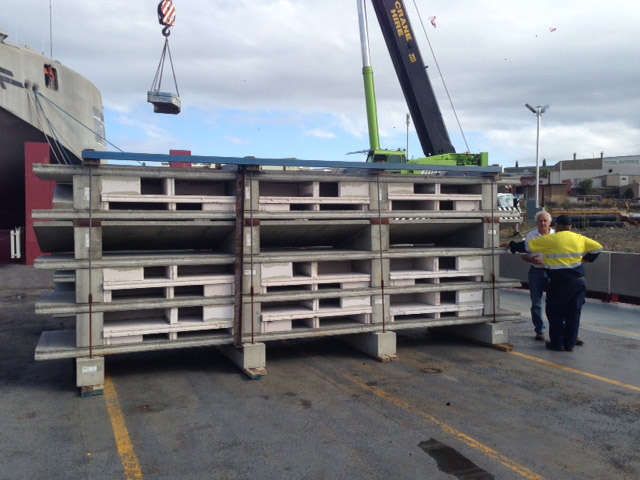
The first steps in a blue skies science project with dramatic potential to significantly enhance seafood production from the sea will be taken today at Taroona, outside Hobart, with the deployment of two artificial reefs on which a population of marine animals can be raised.
Australia has the third largest marine jurisdiction in the world, one that is larger than its land mass. Innovative, careful and sustainable accredited use could make Australia a major seafood supplier.
The University of Tasmania's Institute for Marine and Antarctic Studies (IMAS) is working with Victorian company Southern Blue Reefs to trial the artificial reefs and open offshore territory for the development of innovative new marine production industries.
Project leader, Professor Stewart Frusher, said Australia has the potential to become a world leader in innovative offshore marine production systems based on high value and sustainable reef species. The long-term vision is to develop a large-scale, flexible floating reef system beyond the continental shelf.
"Australia's major fisheries, by value, are reef based – abalone and lobster. Artificial reefs thus offer the opportunity to build on our existing resources and reputation for high quality and sustainable products".
"Reefs are the rainforests of the seas and the most productive marine regions. The start of our reef journey is a proof of concept experiment to determine an appropriate artificial reef design where, in this case, lobsters can be housed and raised.
"Tasmania already has an advantage with many years of research into the wild fishery and aquaculture at the IMAS Taroona marine research laboratories. Artificial reefs provide a linkage between these research areas and is attractive for many reasons, not the least being high quality and sustainable production for our regional neighbours," Professor Frusher said.
The reef will in part be used by the ARC Research Hub for Commercial Development of Rock Lobster Culture Systems. Using hatchery cultured lobsters grown at IMAS, researchers will undertake an evaluation of the viability of stock enhancement using Eastern Rock Lobsters. He said the University of Tasmania is well placed to lead this development as it has world-class expertise in ocean governance, physical and biological marine science, marine economics and marine engineering.
"While artificial reefs have expanded in coastal regions in many countries, offshore marine production locations offer access to high quality waters, provide opportunities for large scale sites, minimise impacts from extreme events, minimise biosecurity issues and, can take the pressure off coastal systems to provide increased marine food," Prof Frusher said.